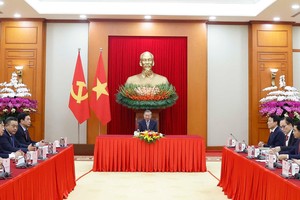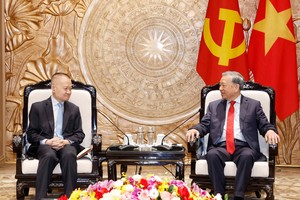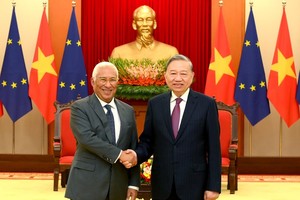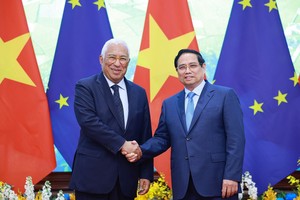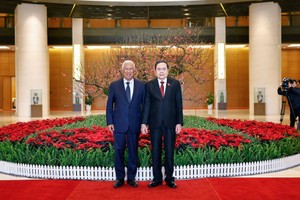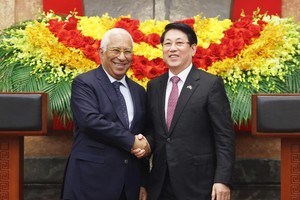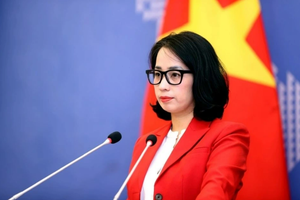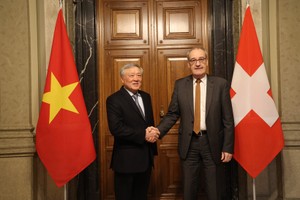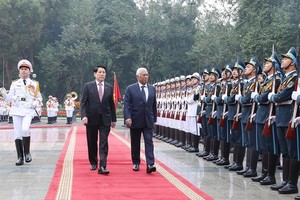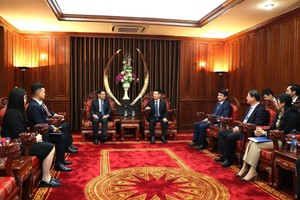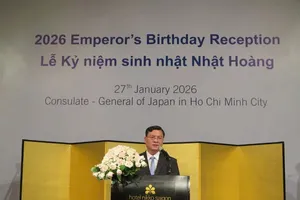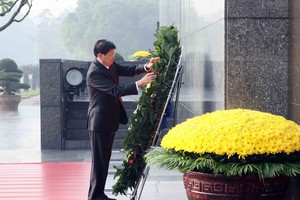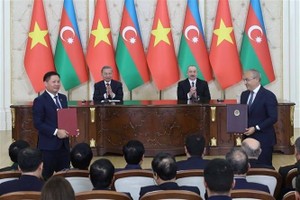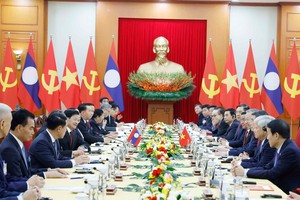Tens of thousands of protesters flooded Yemen's streets on Tuesday in a "Day of Rage," demanding an end to the president's three-decade rule.
In the capital Sanaa, demonstrators chanted "With blood and soul we support you, Aden," referring to the southern port city where most of the 24 people killed in the past two weeks of protests have died.
Some demonstrators flashed "V" for victory signs while others wore white headbands with "Leave" written in red -- a message addressed to President Ali Abdullah Saleh.
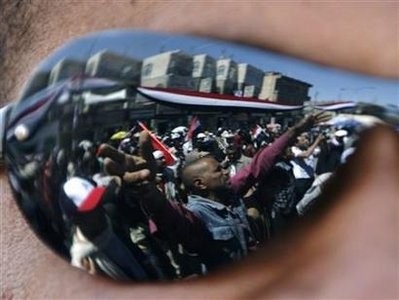
Tens of thousands more marched through the streets of Ibb and Taiz, south of Sanaa.
Already rocked by separatism and an al Qaeda insurgency, Yemen is one of the Arab nations most shaken by popular protests sweeping across North Africa and the Middle East.
Saleh, a U.S. ally against al Qaeda, has failed to quell two months of protests in a country of 23 million where 40 percent live on less than $2 a day and a third are undernourished.
On Monday he offered to form a unity government but the opposition rejected it. On Tuesday, Saleh replaced the governors of five mostly southern provinces at the center of the protests.
"Victory is coming and it is near," Hassan Zaid, an opposition leader, shouted to the protesters gathered in Sanaa, where they have been camping out for two weeks. "We have one goal and one demand, and that is the quick end of the regime."
Protesters are angry at widespread corruption, as university graduates struggle to get jobs without connections, and youth unemployment is high. Northern rebels and southern separatists say they are denied resources and a say in politics.
As oil and water resources dry up, the 68-year-old Saleh is less able to pay off allies to keep the peace.
CLASHES IN NORTH
In Hodeidah province in the north, Saleh loyalists and protesters fought with rocks and sticks. Four people were hurt.
Security forces in the south have come under frequent attack in recent days. On Tuesday, separatists fought the army in southern Habilayn, killing two soldiers and wounding three.
The U.S.-based group Human Rights Watch said at least eight people detained by Yemen security forces last month, including several southern separatists, had disappeared.
"Snatching and hiding political opposition leaders ... is hardly compatible with the government's claim to protect rights," said Sarah Leah Whitson, HRW's Middle East director.
U.N. High Commissioner for Human Rights Navi Pillay said in a statement: "We have seen over and over again in the past few weeks that violent responses, in breach of international law, do not make the protesters go away and only serve to exacerbate their frustration and anger."
CLERIC SWITCHES SIDES
A leading hardline Muslim cleric, Sheikh Abdul-Majid al-Zindani, who two weeks ago backed the idea of Saleh staying in power until his term ends in 2013, joined protesters in the capital.
"There is no legitimacy to a ruler whose people do not want him," Zindani said in Sanaa.
Veteran leader Saleh lashed out at President Barack Obama over demands that leaders show restraint in tackling unrest as protests, galvanized by successful uprisings in Egypt and Tunisia, rage across Libya, Yemen, Bahrain and Oman.
"Every day we hear a statement from Obama saying 'Egypt you can't do this, Tunisia don't do that'," Saleh said in a speech at Sanaa University, a rallying point for protests in the capital where tens of thousands have gathered outside campus.
"What do you have to do with Egypt? Or Oman? Are you the president of the United States, or president of the world?"
